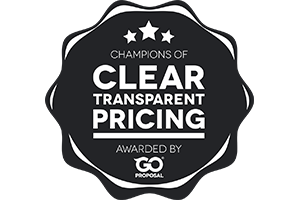Some Accountants are bad at Accountant-ing
‘Just like some cleaners are rubbish and some chefs can’t cook for toffee.

When we meet people looking for a new accountant, I would estimate that two-thirds are actively unhappy with their current adviser. Most of them are justified in how they feel. But only a few have been working with a bad accountant. The vast majority are simply working with the wrong accountant. Finding the right one for you is the key to a happy and productive relationship.
Here are the areas to focus on when you are deciding if an accountant is a good fit for you and your business:
Can you identify with the person in charge?
I have an equity stake in the business. I make strategic decisions and when the inevitable proverbial hits the fan, it’s me that deals with it. I worry about customers leaving, costs going up and juggle the competing demands of running an SME. That means that I can have meaningful conversations with my customers. They can learn from my (numerous) mistakes and I can help them spot the bumps in the road ahead before they hit them. We are a partnership. They’re checking the tyre pressure while I am topping up the screen wash.
Are you important to your accountant?
The most common reasons I hear for business owners feeling disappointed with their relationship with their accountant are: time to respond, reactive behaviour, and being treated like a faceless commodity. Maybe your accountant has grown and you’re no longer their “ideal” client? Maybe your accountant was bought out by a bigger firm and the new organisation is not set up for a business like yours? If we don’t think that we are a good fit for a prospective customer, we show them some respect and tell them so. We’ll also help them to find the right accountant for them. Likewise if an existing customer’s business changes and we’re no longer the best fit for them, we’d support them in a move to another accountant.
Are you paying enough?
A bit controversial, as Ben Elton might say, but please read on.
Conventional wisdom is that you should invest between 1% and 4% of your turnover in your finance function. Where you fit in that range will depend on a number of factors. For example: the complexity of your operations and processes; your transaction volumes. Duties like CIS will create additional work and fees, and differentiators like whether you pay your staff weekly or monthly will influence your overall fee.
Indulge me please with a short story about someone I know who is a genuinely good bloke. He has to trim every quote for work on his house to the point where there is almost no profit left on the table. He even sources the materials himself. No big surprise that he is always unhappy with the results and blames the service provider. Even when the problem is caused by the materials he has bought. If you do this to your accountant, you’ll get a similar outcome.
We meet businesses that do their own bookkeeping and VAT returns (it’s just hitting a button, right?) to keep costs down. I am not exaggerating when I say that their accounts will be wrong – misreported VAT, distorted profit, and inaccurate financial reports being used to evaluate goals. Downwards pressure on fees also leads to accountants taking on more customers than they can possibly serve well, and delegating tasks to a cheaper resource that doesn’t have the expertise needed.
We charge a fair price that allows us to do a good job and we are totally transparent about all of our fees.

Ready to look for a new accountant?
If you’re looking for a new adviser – whether your accountant is “bad” or simply the wrong one for you, please have a look around our website, read a few of my other articles, and give us a call if you like what you see.
